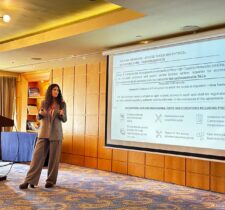CNIL imposes €1 million fine for several infractions related to data subject’s rights and transparency obligations
€1 million fine imposed by CNIL on an energy company for several GDPR violations related to data subject’s rights and transparency obligations. After receiving several complaints regarding the difficulties encountered by users in having their requests for access to their data and opposition to receiving calls for the purposes of direct marketing fulfilled by





